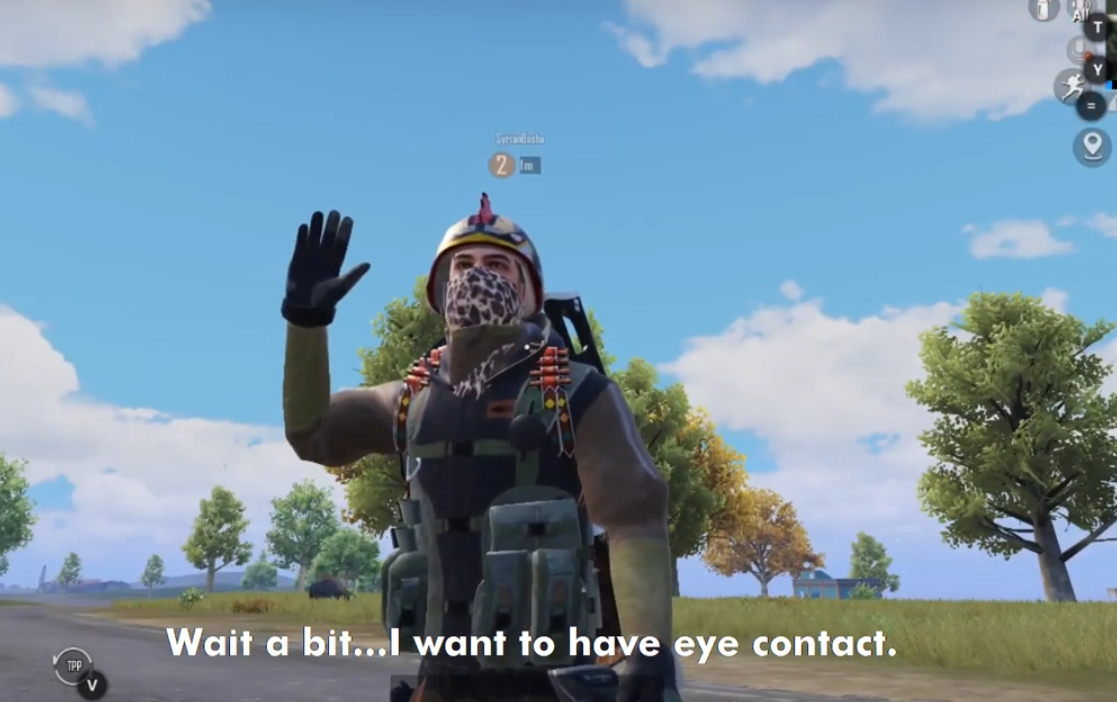Becoming a Ghost
Four channels video installation, 21:00 minutes, on loop.
The online video game PlayerUnknown's Battlegrounds (PUBG) begins by parachuting hundred
players onto a large island. Tumbling down naked from the sky, they land on 3600 square
kilometres of game space. Players must then scavenge weapons, vehicles and clothing, while
fighting and evading other players as everyone competes to be the last person or team standing.
PUBG is massively popular in Syria, which feels peculiar given its eerie similarity to the actual
state of ongoing war in the country.
When a peaceful uprising against the president of Syria turned into a full-scale civil war in 2011,
artist Giath Taha decided his armour of choice would not be a weapon, but a camera. Eventually
he was forced to flee the country. Entering the world of PUBG ten years later from his new
country of residence, the Netherlands, he made the same decision, letting his avatar roam around
completely unarmed. The game became a gateway to revisit the past, in which both the sounds
and visions of war triggered memories of what he had left behind. Making virtual walks on the
island of PUBG, by taking screenshots Taha documented scenes that have an uncanny
resemblance with the photographs he had made in Syria.
Eventually, the artist found out that his own brother – whom he hasn’t seen in eleven years – is
an avid player of the game, and even the commander of a virtual battalion. The artist’s focus
shifted and suddenly the brothers had their own game to play: to spend as much time together as
they possibly could without getting killed. Registration of their shared experiences within the
game is what Giath Taha turned into the video work Becoming a Ghost (2022). While the threat of
sudden death constantly looms large, PUBG also offers the brothers a safe zone to discuss topics
that on regular communication platforms would otherwise be censored. This makes their
conversations in itself an act of resistance.
